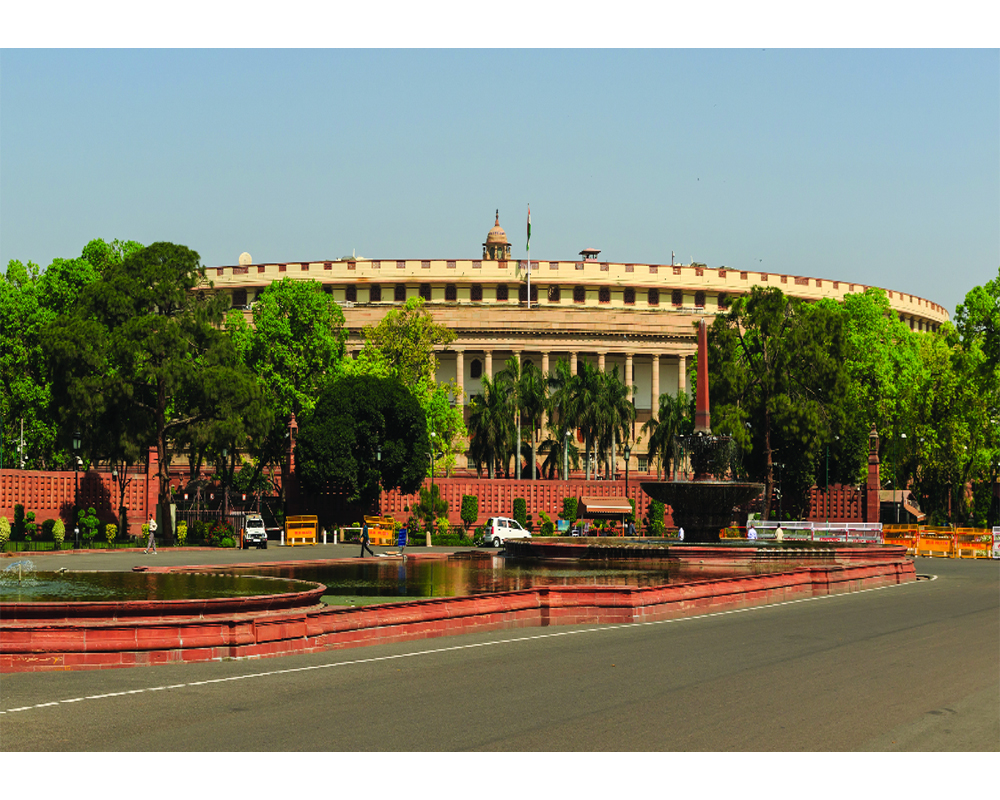Parliament needs to function effectively on framing Bills, budget scrutiny and holding the Government accountable. But that is not the focus today
Former President Pranab Mukherjee, as leader of the House, vexed with the unruly behaviour of the Opposition observed that only three ‘Ds’-Discussion, Debate, and Dissent- have a place in Parliament and not the ‘fourth ‘D’ — Disruptions. Unfortunately, both the houses today are only indulging in the “disruptionsâ€. As it is, the Covid had curtailed the sessions last and this year, and disruptions have further impacted Parliament’s functioning.
Since 1952, MPs had followed broadly rules and regulations laid down for the members.However, due to various reasons, indiscipline, noisy scenes, rushing to the well of the House and shouting slogans have become the norms of the day now. Whichever party is in Opposition (now Congress and TMC) seems to believe that disruption and not debate is perhaps the best way to focus on the issues they consider important.
Historically, there was a degree of homogeneity in the House in the fifties, and there were many eminent Parliamentarians then. Gradually, other parties also began to grow while Congress shrank leading to a coalition politics in the eighties. Records show that a member at one point in time even ended his speech by commenting:â€We have the arguments. You have votes.â€
Parliament needs to function effectively on framing bills, budget scrutiny, and holding the government accountable. Sadly, that is not the focus today.
Democracy demands that Parliament scrutinize the government’s decisions, but settling political scores on the floor of the House makes lawmakers fail in their duty to discuss and debate bills. Parliament gets adjourned many times in a day. The opposition parties want to paralyze the Parliament and reduce the ruling party’s ability to pass crucial bills. The government, too, wants to get the bills passed amidst din and noise.
Over the years, there has been a decline in the sittings of Parliament. Some think that Parliament should sit for more days. Both Houses sit for an average of 67 days annually.
For instance, take the case of Rajya Sabha. The work of the House of Elders has been adversely affected since the session began on November 29, with the Opposition working up over the suspension of 12 of its members. The Chairman of Rajya Sabha, M.Venkaiah Naidu, suspended 12 opposition members for the entire session following their unruly behaviour. For the present, the standoff continues with the opposition staging a protest near the Gandhi statue in Parliament House demanding revoking the suspension.
Indeed, the House can punish the erring MPs. It could be a warning, reprimand, withdrawal from the House, suspension from the service of the House, imprisonment and expulsion from the House. Rules also prescribe the punishment for violating them, which is left to the Chair’s discretion.
A galaxy of political leaders, including then Prime Minister Atal Bihari Vajpayee, leader of Opposition in the Lok Sabha Sonia Gandhi, and others attended a one-day conference in 2001 to discuss discipline and decorum of MPs. They all agreed on improving the functioning of Parliament.
Sadly, MPs have failed in their duties. It costs the exchequer Rs 2.5 lakh per minute to conduct a parliament session, resulting in a loss of Rs 1.5 crore for every wasted hour. The taxpayer’s money is going up in smoke.
There are many suggestions to improve the functioning of Parliament. The first is that the leaders of various political parties should take a lead in this regard. Secondly, the members should be cautioned against irresponsible behaviour in the house. Thirdly, fresh guidelines could be formed with the help of all political parties. Fourthly, the government should have a dialogue with the opposition to avoid any misunderstanding of the government’s policies. Both sides should show flexibility and accommodate each other. Presently, neither the government nor the opposition is interested in this option. It is for the Government to run the business of the house.
One can also think of the British pattern where the Parliament meets over 100 days in a year. The opposition parties get 20 days to decide the agenda for discussion in Parliament. Decisions passed on opposition days are not binding on the government, but give an opportunity to opposing parties to raise issues.
Ultimately it is the politics which is the villain of the situation and there is need for both the treasury benches and the opposition to make sure that the three Ds — discussion, debate and debate — should be the goal of both the opposition as well as the ruling party to ensure the success of democracy in India.
(The writer is a senior journalist. The views expressed are personal.)


























